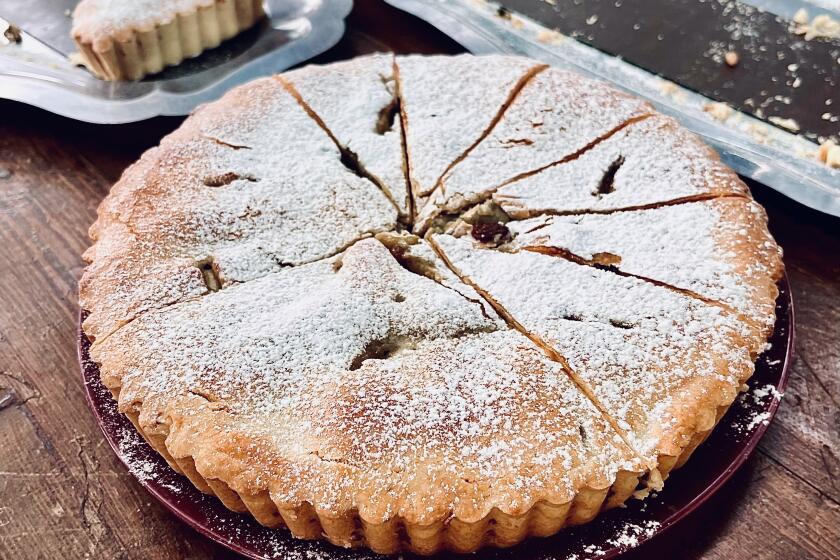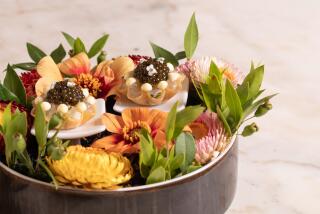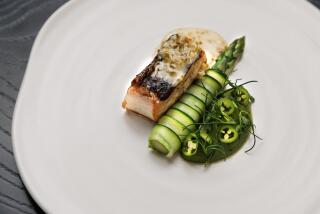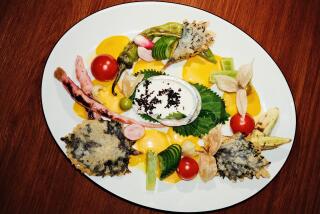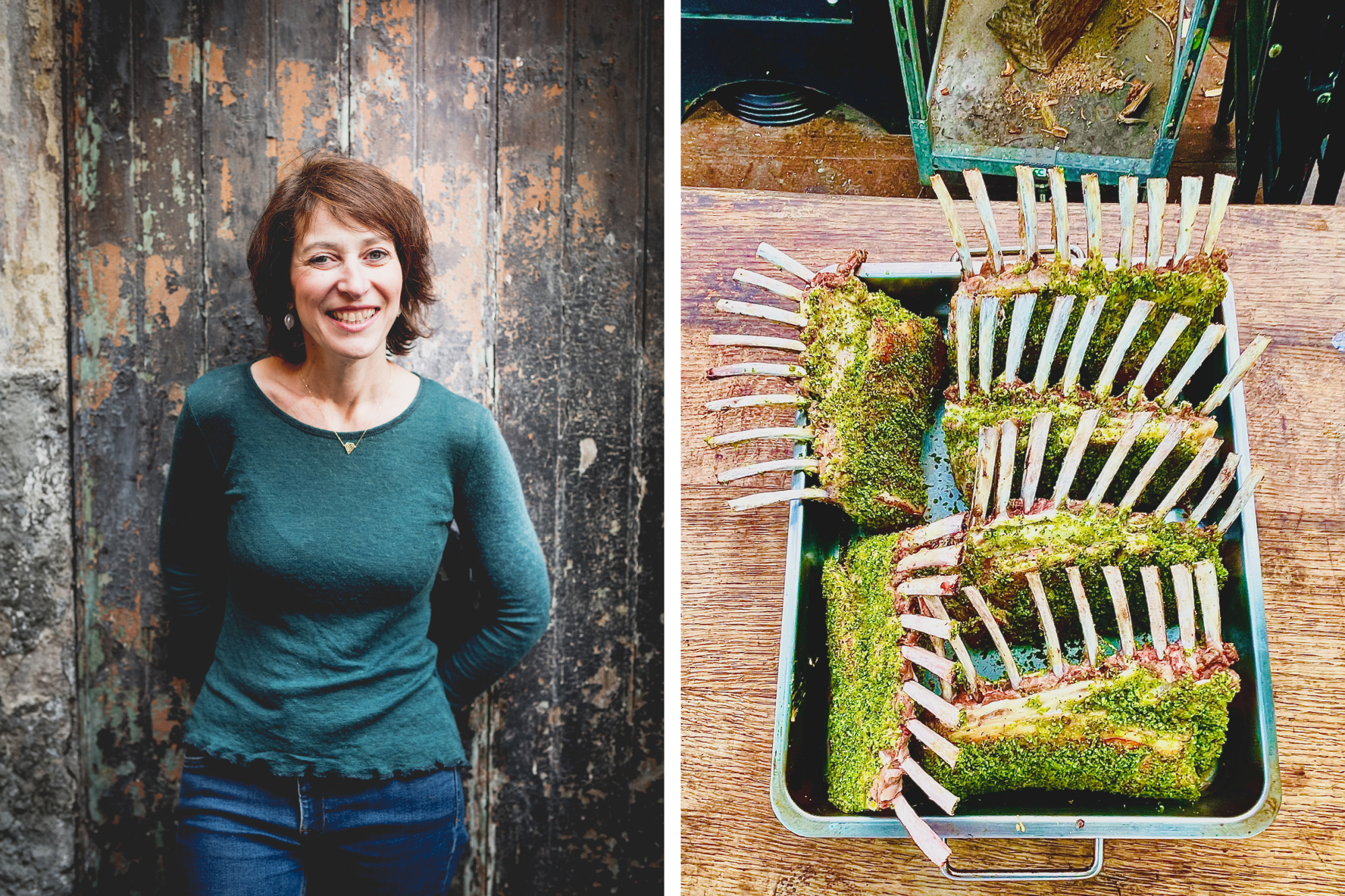
There’s a certain reverse snobbery that some travelers may feel when they first arrive in Nice.
So sleek. So sunny. So touristy.
I admit that after a dinner of indifferently prepared Niçoise specialties in a restaurant along the Cours Saleya, when light-up pedicabs and street performers replaced the famed daytime market vendors, I thought I’d missed my chance by decades to experience the pleasures that attracted Julia Child and her husband, Paul, when they kept a house 20 miles outside the city.
Then I took a cooking class with Rosa Jackson.
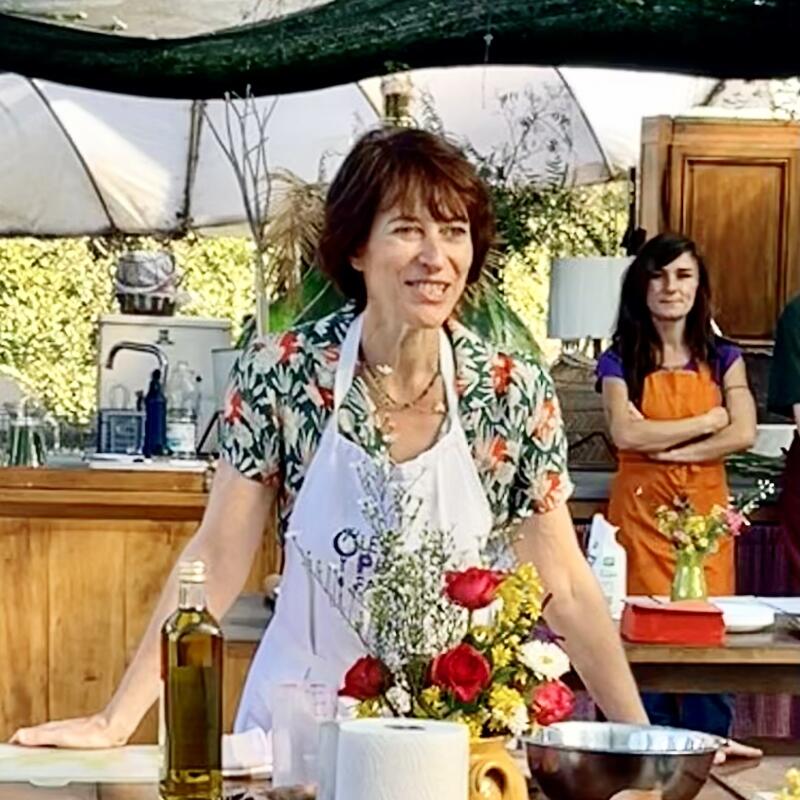
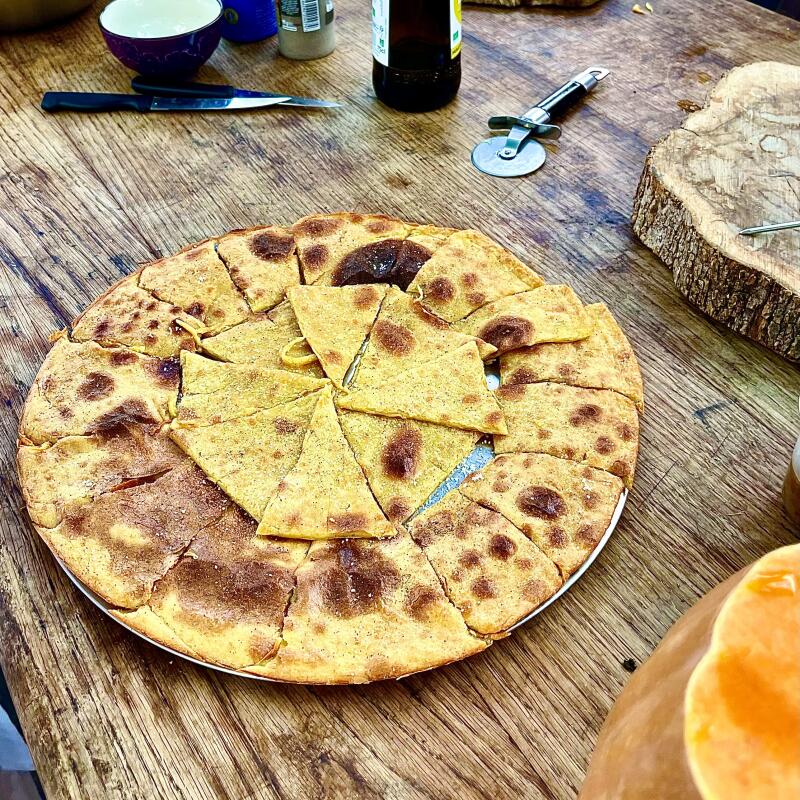
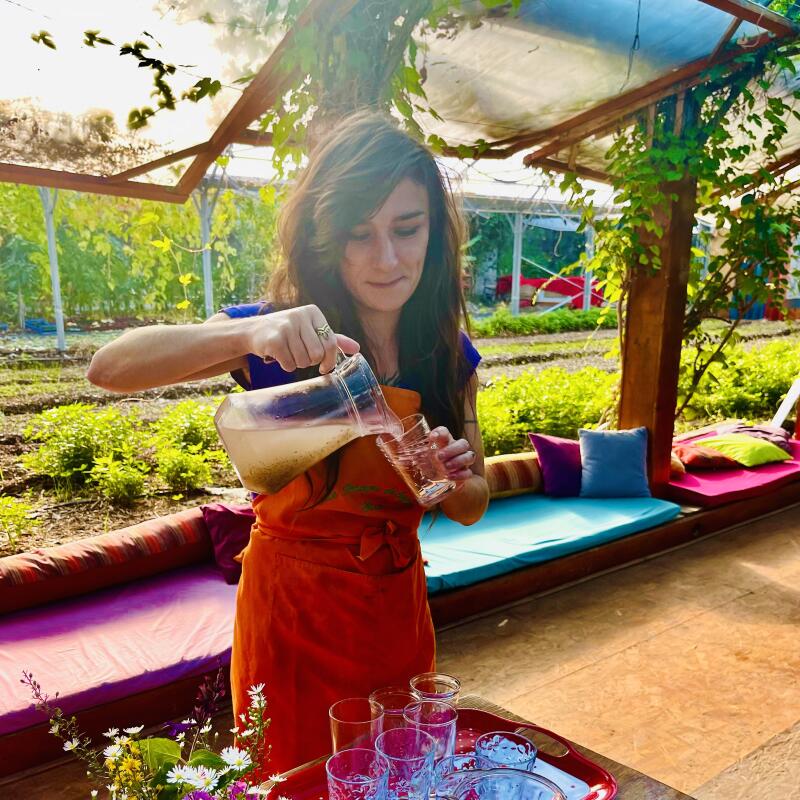
Author and cooking teacher Rosa Jackson at the organic farm Le Potager de Saquier in Nice, France. Socca, the Niçoise chickpea pancake, served at Jackson’s cooking class. A member of the cooking class team welcomes students with fresh lemonade. (Laurie Ochoa / Los Angeles Times)
At first it was the setting that drew me in. Jackson, who spent years in Paris as a restaurant reviewer and market tour guide, usually holds classes of eight or so people at her Les Petits Farcis cooking school in the heart of Nice, not far from the artificial waterfall in the Colline du Château parkland. But our group was large so we took a bus into the Nice countryside and arrived at Le Potager de Saquier, a dreamscape of an organic farm run by Anne and Pierre Magnani.
Upon disembarking, we found an aproned Pierre Magnani cutting into deep orange-red persimmons he’d just taken off a tree. He handed slices to some of us with a gleam in his eye that seemed to anticipate our delighted reactions once we bit into the intensely flavored fruit. Others in the group were drawn to the scent of bumpy, bulbous globes of citron, hanging from the trees like enchanted Christmas ornaments.
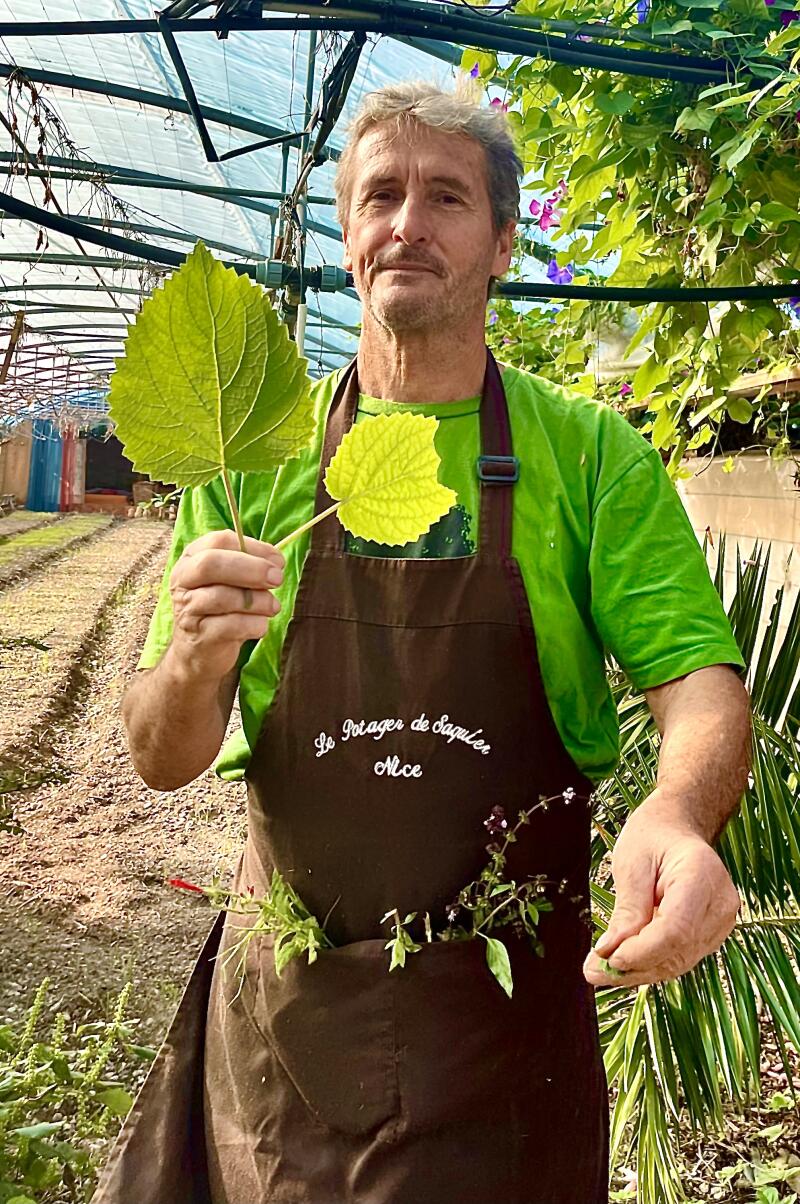
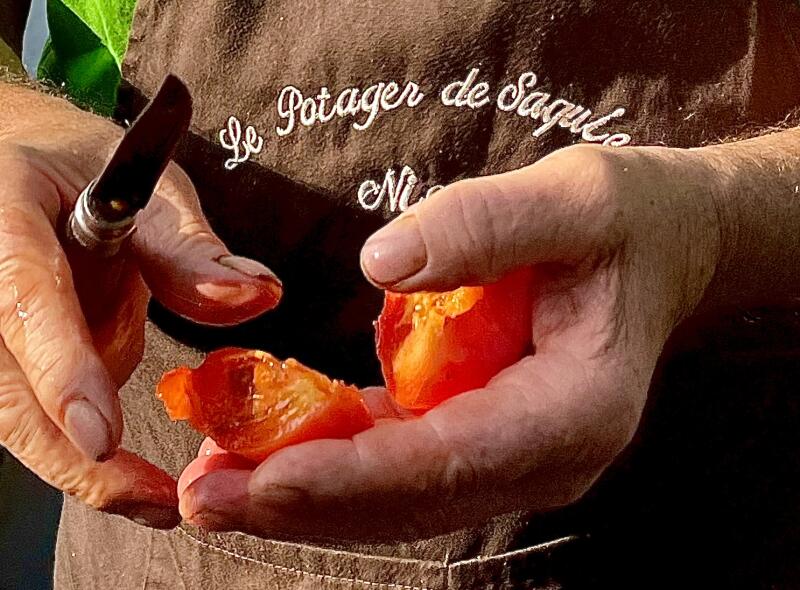
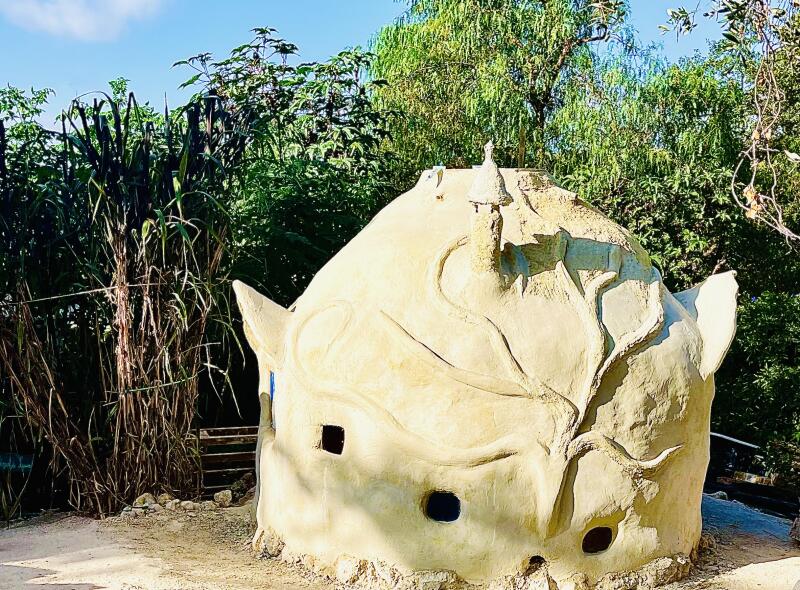
Pierre Magnani giving a garden tour at Le Potager de Saquier in Nice, France. Pierre Magnani of Le Potager de Saquier in Nice, France, cuts a just-picked persimmon before Rosa Jackson’s cooking class. A plaster hut under construction at the organic garden Le Potager de Saquier. (Laurie Ochoa / Los Angeles Times)
We made our way past a wheelbarrow full of orange-skinned squash and a Hobbit-like hut under construction for future overnight guests, then entered the outdoor kitchen where Jackson and her team greeted us with pitchers of fresh lemonade.
Le Potager de Saquier, situated above the Var valley, functions part of the year as a bed and breakfast. Some guests sleep outdoors next to one of the vegetable plots and near the open kitchen, fitted with a wood-burning stove and shaded by recycled tarps and netting. There are couches and cushioned benches covered in pink, orange and purple throws and pillows. Flea market finds are scattered among bowls of fruit, vegetables and herbs harvested from the farm.
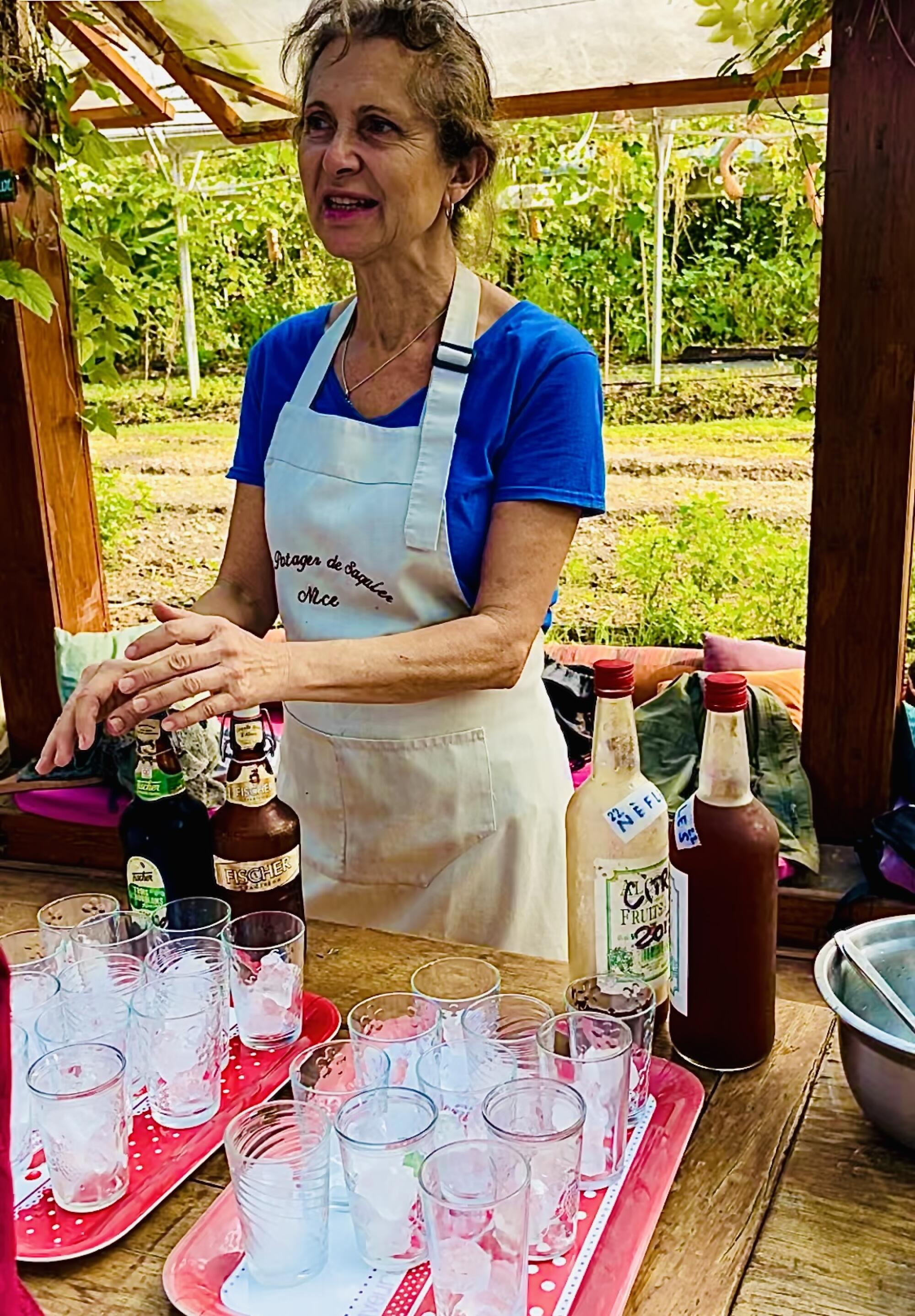
It was easy to get lost along the garden paths and ask Pierre Magnani about his crops or to fall into conversation with Anne Magnani as she poured a liqueur made from herbs on the farm and stirred it with a rosemary sprig. But our goal for the day was to make lunch together as a group with Jackson as our guide. Then we would enjoy the results of our lessons at a long table with wine and good conversation.
One of the best parts of Jackson’s class style is that it’s easy for cooks of different experience levels (or energy) to participate in their own way. On this day at the farm, some chose to sit back and observe the proceedings from a comfortable chair with a glass of wine while others got right in the thick of things. Jackson is a non-judgmental cooking guide.
“The ones who want to be there stirring all the pots and everything can do that,” she says. “And I also like having kids in the class because I love to feed the enthusiasm that kids bring to the kitchen — and also maybe give them a taste of of cooking that will stick with them.”
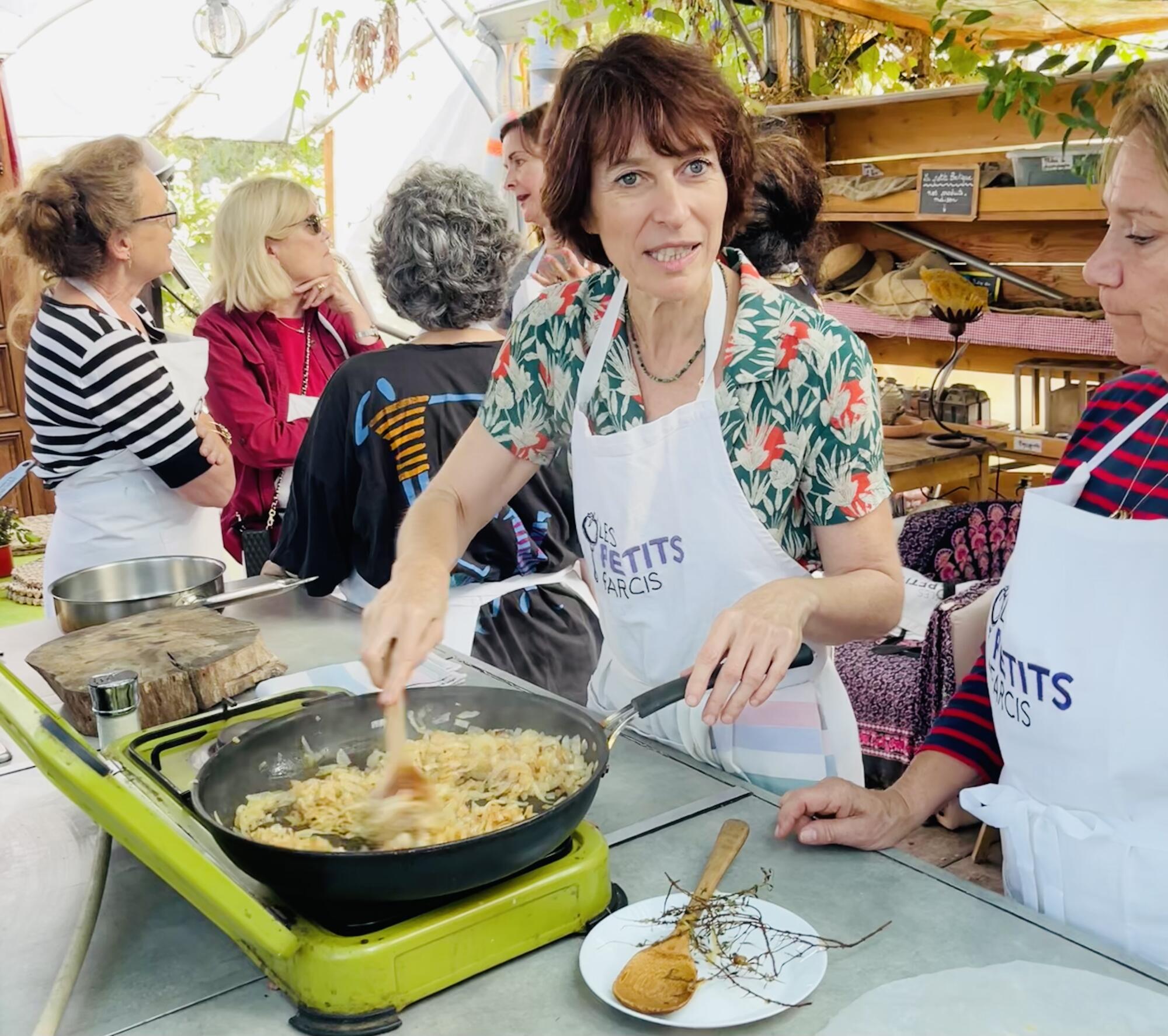
Jackson’s first experience in the South of France was on holiday with her family when they’d left their home in Edmonton, Canada, and were living in Paris for a time.
“I mostly just remember beautiful beaches,” she says of the French Riviera, “but not so much the food.”
Later, she came to Cannes after friends offered her a place to stay for vacation, but she still wasn’t smitten. “Cannes is a fun place to spend a holiday,” she says, “but it didn’t capture my imagination.”
Things changed when she visited Nice.
“Suddenly I felt the history. It has its Italian feel and then the food is so different from other parts of France,” she says. “Even Cannes,” which is just about an hour away.
“You know you can compare the food of Nice and Cannes, they’re not the same,” she continues. “I just got really curious. I wasn’t that concerned with the glamorous image of the Riviera. It was the contrast between the image people have of the Riviera and what you actually find when you start digging around the markets.”
One particular day at the market was pivotal.
“I vividly remember the day Franck Cerutti [the executive chef at Alain Ducasse’s Louis XV in Monaco] introduced me to some of the farmers,” she says, “and they were pulling things out from under the table that they had hidden. You know, like maybe they had a few green beans but they were the first of the season. Or they had a few cheeses that they weren’t officially selling — you had to ask. It was this whole secret hidden part of the market that I wanted to know more about. I realized that you have more contact here with people, with the farmers, and get to know them on a different level.”
Her inquisitiveness led her to delve deep into the recipes and flavors that make this part of France so distinct, including a taste for blending savory and sweet flavors as in the sweet Swiss chard pie, or tourte de blettes sucrée, seen in many traditional Niçoise bakeries.
At Le Potager de Saquier, the pie was a triumphant conclusion to our lunch with Jackson, a leisurely meal that included the Niçoise classic chickpea pancake socca and onion-and-anchovy-topped pissaladière, as well as rack of lamb with a mustard-herb crust and a squash purée that Jackson flavored with lemongrass and makrut lime grown on the farm.
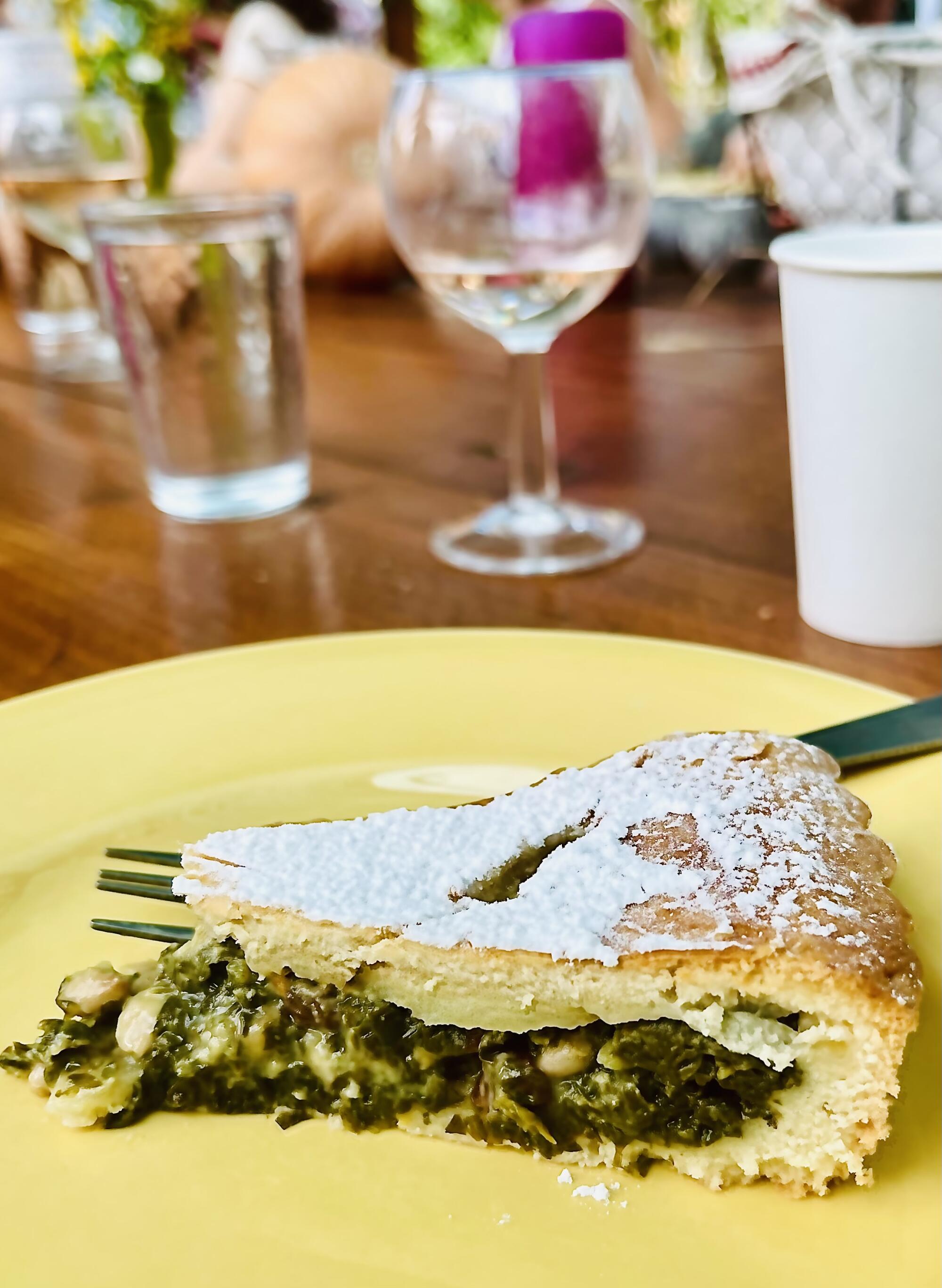
Along the way she passed along tips about kneading dough and the French habit of using a circle of parchment paper instead of “a lid that’s always dripping and hot” for the long process of sautéing a batch of onions — “so that you can see and hear and smell what’s going on.”
It’s this kind of advice and the recipes she’s collected and adapted over her 20 years in Nice that have gone into her new book “Niçoise: Market-Inspired Cooking from France’s Sunniest City.”
“I wanted this to be a little bit more of a modern take on Niçoise cooking,” she says, “which isn’t to say that the recipes are not accurate, but they include things I’ve learned from people who weren’t necessarily from Nice originally. So I have recipes from local chefs who are Vietnamese or North African because Nice is not just about people who have been here for generations. It’s always attracted people from other countries. So I wanted the book to reflect that.”
The next night, I sit at a table outside the wine bar Rouge amid antique shops closed for the night, sipping a crisp white and snacking on squid, anchovies and cigars of the chard-filled fritter called barbajuan. It’s then that I realize I too may be falling under the spell of Nice.
The Recipe
Tourte De Blettes Sucrée (Sweet Swiss Chard Pie)
Find Rosa Jackson at the Los Angeles Times Festival of Books on Saturday, April 20, 4 p.m., at USC’s Ray Stark Family Theatre, where she’ll discuss cookbooks and food memoirs with Joan Nathan and Klancy Miller.
More to Read
Eat your way across L.A.
Get our weekly Tasting Notes newsletter for reviews, news and more.
You may occasionally receive promotional content from the Los Angeles Times.
